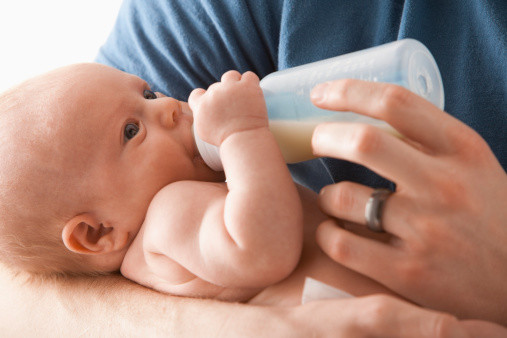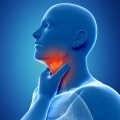 Spitting up in newborns after feeding is a normal physiological phenomenonPhoto: Getty
Spitting up in newborns after feeding is a normal physiological phenomenonPhoto: Getty
Regurgitation in newborns after feeding: causes
Spitting up in a baby after feeding -a normal physiological process. Excess air comes out of the stomach, which indicates that the digestive system is working properly. This usually happens in children under 6 months. Later, such cases are rare. If regurgitation does not cause discomfort to the child and he feels well, then there is no need to worry. The main causes of regurgitation include:
- Overeating - the baby sucks milk, already fully saturated. Then the stomach gets rid of excess food;
- a child can swallow air at the time of feeding with an incorrect body position;
- regurgitation in a baby is possible with flatulence. If the child is fully breastfed, the mother should revise her diet and remove products that provoke excessive gassing;
- frequent constipation also leads to regurgitation.
Excessive regurgitation in a baby can bea symptom of some diseases - dysbacteriosis, congenital intestinal pathologies, brain damage. A great danger is fountain regurgitation in newborns. It can be a consequence of brain injuries received during childbirth. Inpatient treatment and constant medical supervision will be required. This type of regurgitation is also possible against the background of severe poisoning or infectious diseases. These conditions are dangerous to the health and life of the baby, so they require immediate medical attention.
How to avoid regurgitation in newborns
To reduce the risk of regurgitation in newborns after feeding, you need to know the following:
- during feeding the baby should be in the correct position;
- before feeding the baby you can put on your tummy and do a light massage;
- make sure that the nose of the newborn is not laid;
- mixture for feeding should be given in a warm form;
- for feeding mixtures use special anti-nipple nipples and bottles;
- Do not actively play with the baby right after he ate;
- after feeding, they advise you to walk with the baby on your hands, until the excess air comes out, you can lightly pat him on the back.
Now you know the reasons for regurgitation in newborns. If the child feels well and is steadily gaining weight, then there is no reason to worry. It is also useful to know:









